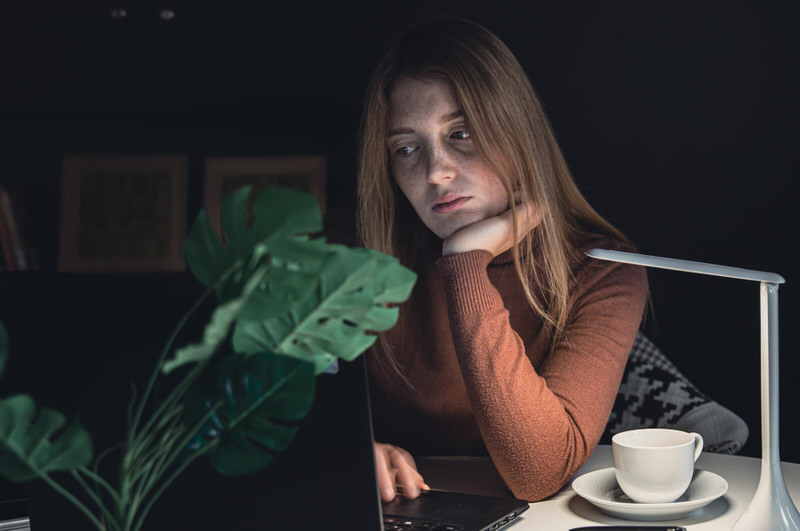A moderate caffeine intake has been associated with a reduced risk of depression, fewer cognitive failures, and a lower risk of suicide. However, it’s mostly unsuitable for people with different or several mental health issues such as anxiety, depression, OCD, ADHD, or bipolar disorder. Caffeine seems to elevate symptoms and make things worse for people. Caffeine interaction with psychiatric medications might also complicate the overall treatment and result in side effects.
Caffeine is a psychoactive drug widely consumed all over the world. When it comes to caffeine consumption in the U.S. alone, over nine in ten Americans are addicted to this beverage.
The fact that it’s readily available in various forms, such as energy drinks to purchase makes it even easier to get addicted to it, as consumers can adjust the dose as well as intervals of caffeine consumption.
While caffeine tends to benefit some people if taken in moderation, its effects on people suffering from mental illnesses are insufficient and might not be so beneficial.
Caffeine and depression
Depression affects 21 million American adults each year. It might be a different experience for each person, but it’s mainly defined as going through periods of extreme sadness.
People are recommended to take advice from their doctor and follow on treatment options presented to them.
However, caffeine and depression have an interesting sweet-and-sour relationship.
Positive effects
In an analysis of observational studies on the relationship between caffeine and depression, coffee consumption decreased the risk for depression.

Coffee contains chlorogenic acid, ferulic acid, and caffeic acid. These acids can reduce nerve cell inflammation in the brains of people with depression.
This helps relieve some discomfort and distress that depression can bring, some of which occur due to inflammation.
Possible risks
But caffeine is not all good and might not work the same for all people suffering from depression. For some, it might help relieve their symptoms, but for others, it could do the opposite.
1. Disruption of neurotransmitters
Coffee might disrupt several vital neurotransmitters, such as dopamine and gamma-aminobutyric acid (GABA).
When someone suffers from depression, there’s a shortage of or disruption in dopamine which causes low motivation. This can increase irritability, restlessness, anxiety, and self-criticism.
2. Worsening symptoms
A slight increase in or heavy consumption could also lead to side effects of caffeine, such as anxiety, headache, increased blood pressure, palpitation, nausea, and restlessness.
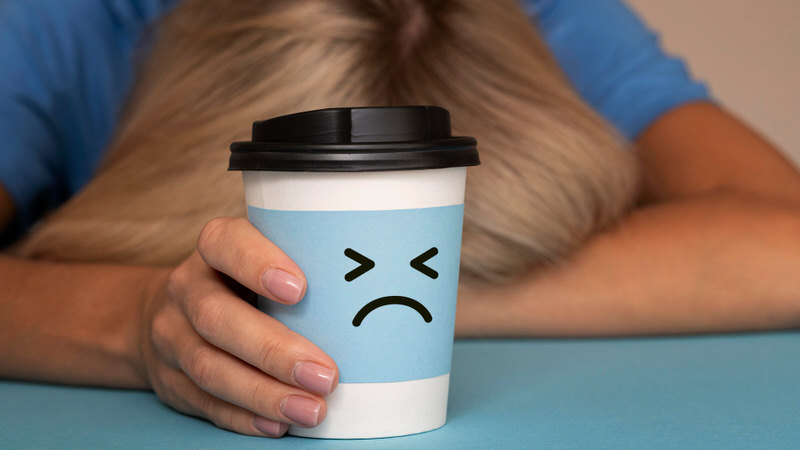
Too much caffeine for a person suffering from depression could alleviate fight or flight mode and increase anxiety.
It could make depression even more severe and might add other issues.
3. Withdrawal
Depression makes you go through extreme sadness, and caffeine might be helping in boosting their mood.
But for that, they have to keep on moderate consumption (fewer than 6 cups of coffee each day) because if they don’t, they could suffer from even more severe withdrawal symptoms than a person without depression would.
Caffeine and anxiety
People suffering from an anxiety disorder tend to worry excessively about all sorts of things, preventing them from living an everyday life.
There’re different kinds of anxiety disorders, such as:
- Generalized anxiety disorder (GAD)
- Social anxiety disorder (SAD)
- Panic disorder
- Post-traumatic stress disorder (PTSD)
Caffeine tends to alert you and makes you feel more energized and focused on doing your work.
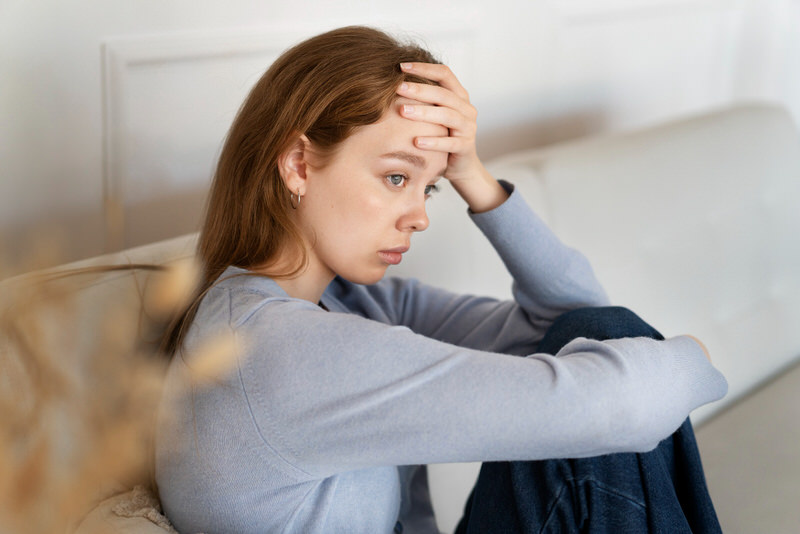
While it works best when one needs to concentrate on a particular task, it could have side effects for those suffering from anxiety.
It could cause:
- Nervousness or restlessness
- Fast heartbeat
- Headache
- Excitement
- Shakiness
- Irritability
- Digestion issues
- Frequent urination
Most of these symptoms mentioned above coincide with those of anxiety.
So it can make you feel worse as it might highlight your symptoms.
Research shows that people with panic disorder might have an increased risk of having a panic attack or increased anxiety levels if consuming coffee.
It’s recommended to consume it in moderate quantities or avoid coffee altogether.
Focus on how caffeine consumption makes you feel; if it worsens your anxiety, it’s better to eliminate it from your diet.
Caffeine and ADHD
For ADHD, people are recommended to get stimulant therapy as it helps improve their focus and attention span and helps control impulsive behavior.
However, some people think caffeine could help them feel more centered since caffeine is also a stimulant.
Caffeine raises the amount of specific chemicals your brain uses to send signals, such as dopamine. With ADHD, doctors prescribe stimulants as it helps you keep calm and focused.
While some researchers believe caffeine has the potential for ADHD treatment because it elevates dopamine levels, these studies have only been conducted on rats.
On the other hand, taking caffeine in high quantities could make these worse. It depends on your personal experience and whether it seems to work for you.
Caffeine and OCD
Obsessive-compulsive disorder is a common, chronic, and long-lasting disorder in which a person has uncontrollable reoccurring thoughts and/or behaviors that they feel the urge to repeat over and over.
Caffeine could have a positive effect on reducing OCD symptoms. However, overall findings are inconclusive.
Caffeine helps release serotonin which is what SSRI medications contain that are recommended for the treatment of OCD.
Consuming caffeine could also play a role in increasing the brain’s inhibition, which in turn reduces intrusive thoughts, urges, and compulsions.
When people suffer from OCD, it’s not the only mental illness they go through, and it might be accompanied by anxiety.
Some others could be mood disorders, OCD-related disorders, or body dysmorphic disorders.
Depression is also one issue; about 60% of people with OCD will go through at least one depressive episode in their lifetime.
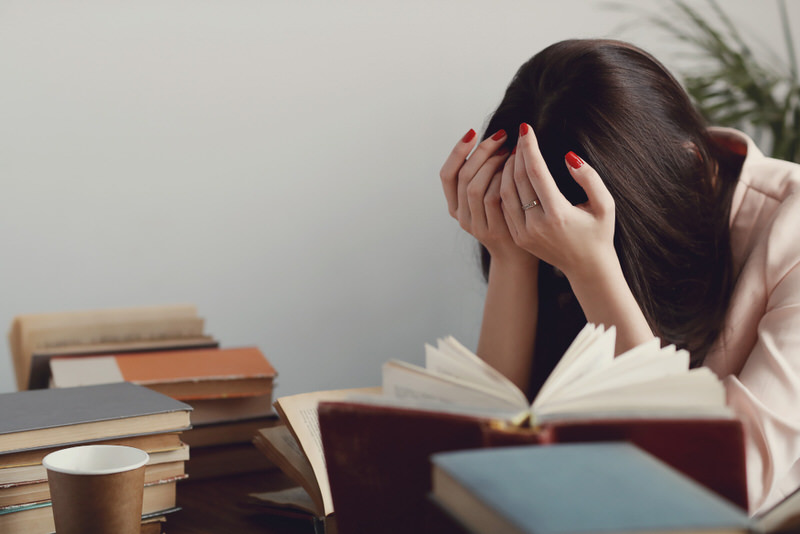
Drinking coffee could worsen other mental health issues you’re going through, which don’t feel good.
You’ll have to judge for yourself if drinking coffee is good for your mental health or not.
Caffeine and bipolar disorder
Bipolar disorder is described as having dramatic mood swings that extend over a certain period.
These periods are termed episodes of mania and depression, and people suffering from them go back and forth between them.
Some evidence suggests that caffeine may be bad news for those with bipolar disorder since it may trigger episodes of extreme mood disturbances in people with bipolar disorder.
Since caffeine helps uplift one’s mood, it may trigger high periods in a person with bipolar disorder.
In fact, consuming it in large quantities could lead to manic episodes with psychotic symptoms, such as delusions of grandeur.
Caffeine interactions with psychiatric medications
Caffeine consumption possesses the power to worsen various mental health issues.
The effects could be different for each person and depend on how severe their disorder is, plus how much caffeine intake is being taken by an individual.
However, all those with psychiatric disorders tend to take psychiatric medications.
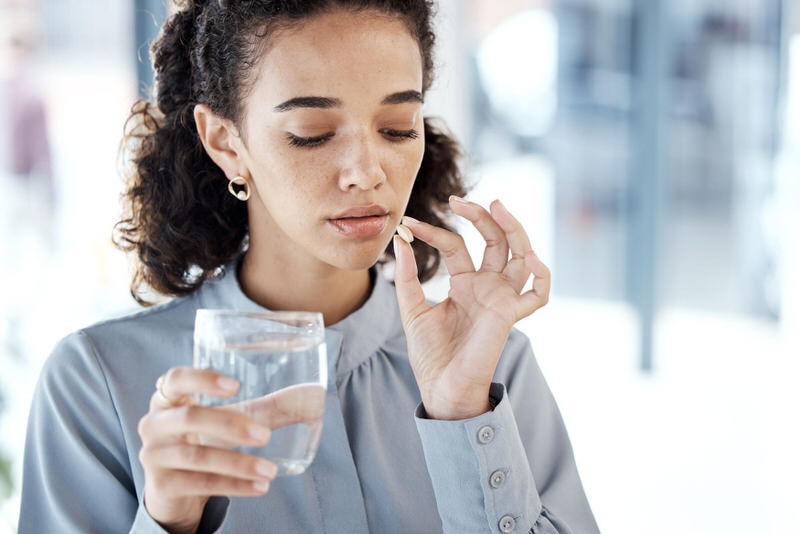
Caffeine can interact with a wide range of these medications, including antidepressant agents, antipsychotic agents, antimanic agents, antianxiety agents, and sedative agents.
These interactions could result in side effects and eventually complicate the psychiatric treatment.
It’s recommended for people with mental health issues to either quit coffee entirely or they could shift to decaffeinated coffee.
FAQs
Can quitting caffeine help mental health?
Caffeine is supposedly good for people with mental health issues and generally for people trying to live a healthier and better life.
If you’re addicted to caffeine, here are some of the benefits you’ll see once you quit caffeine:
– Less anxiety
– Better sleep
– Efficient absorption of nutrients
– Healthier teeth
– Balanced hormones for women
– Lower blood pressure
– Balanced brain chemistry
– Fewer headaches
– Healthy digestion
Can caffeine fix depression?
Caffeine isn’t a magic pill that’ll solve depression; in some cases, it does help people feel happier and thus helps in depressive symptoms. But it doesn’t resolve depression long-term as it’s a temporary relief.
This could easily get you addicted, and consuming caffeine in larger quantities has worsened symptoms. Especially the withdrawal symptoms tend to become worse.
Will caffeine make me happier?
Caffeine causes your body to increase the level of dopamine in your brain, which is the chemical that causes you to feel happy. It’s a temporary solution to feeling sad, which shouldn’t be confused with a permanent way to become happy.
If you feel sad or unsatisfied with your life, focus on finding the underlying issue that could be causing this feeling in the first place.
You could also be suffering from a mental health issue that you shouldn’t ignore.
References
- https://www.medicalnewstoday.com/articles/bipolar-disorder-and-caffeine
- https://www.ncbi.nlm.nih.gov/pubmed/26339067
- https://www.cambridge.org/core/journals/advances-in-psychiatric-treatment/article/neuropsychiatric-effects-of-caffeine/7C884B2106D772F02DA114C1B75D4EBF
- https://www.sciencedirect.com/science/article/abs/pii/S0883941796800744
- https://www.coffeeandhealth.org/mental-performance/coffee-caffeine-mood-and-emotion
- https://www.medicalnewstoday.com/articles/313988#possible-benefits
- https://www.goodrx.com/conditions/generalized-anxiety-disorder/does-coffee-caffeine-cause-anxiety
- https://www.webmd.com/add-adhd/adhd-caffeine
- https://www.healthcentral.com/article/coffee-tea-not-good-maintaining-antidepressants-system

